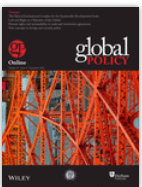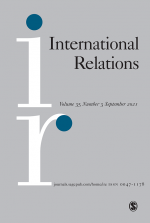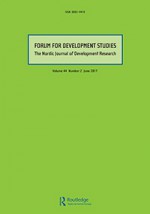Theorizing the EU in Regional Conflict
This article seeks to contribute to the underdeveloped discussion about the way we theorise and conceptualise externally induced peace and security operations in regional conflict, with a particular focus on the EU's role. The framework draws on three theoretical components emphasised in this special issue: the construction of conflict, security governance and the impact of EU security practices. The EU's construction of the conflict is tightly linked to decisions about the mode of security governance and here we need to pay more attention to the often-neglected relationship between the external intervening party and the parties in conflict that are subject to the intervention. Furthermore, the impact of peace operations are usually analysed in terms of implementation and coordination failures, and in our view it is necessary to step back and address the construction of the criteria by which interventions are assessed – in particular, the way intervening actors construct and define ‘success and failure’.








